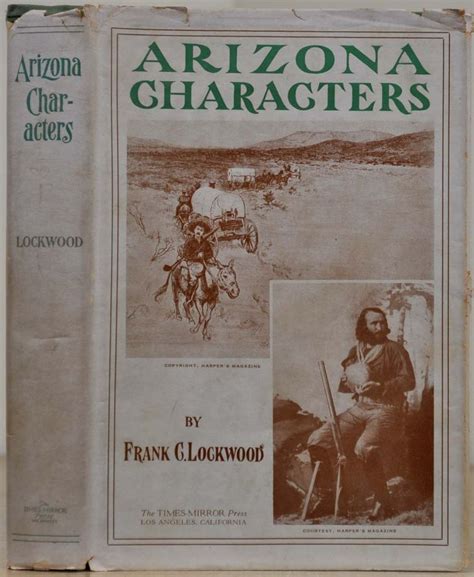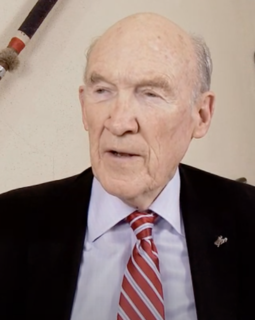A Quote by Mahatma Gandhi
A man is but the product of his thoughts what he thinks, he becomes.
Related Quotes
The common ground where the activities of God and man become one is the motive of perfect love; for in the last resolve love is the essence of God's nature. When he thinks, love is his thought; when he wills, love is the product of his will. To the degree, therefore, that man thinks and wills the good--to the degree that he realizes love in his finite dealings--he interfuses himself with God.
We forget that, although freedom of speech constitutes an important victory in the battle against old restraints, modern man is in a position where much of what "he" thinks and says are the things that everybody else thinks and says; that he has not acquired the ability to think originally - that is, for himself - which alone gives meaning to his claim that nobody can interfere with the expression of his thoughts.
He who thinks much says but little in proportion to his thoughts. He selects that language which will convey his ideas in the most explicit and direct manner. He tries to compress as much thought as possible into a few words. On the contrary, the man who talks everlastingly and promiscuously, who seems to have an exhaustless magazine of sound, crowds so many words into his thoughts that he always obscures, and very frequently conceals them.
God is the treasure, and where the treasure is, there is the heart. By this we may test our love to God. What are our thoughts most upon? Can we say we are ravished with delight when we think on God? Have our thoughts got wings? Are they fled aloft? Do we contemplate Christ and glory? A sinner crowds God out of his thoughts. He never thinks of God, unless with horror, as the prisoner thinks of the judge.
Where no man thinks himself under any obligation to submit to another, and, instead of co-operating in one great scheme, every one hastens through by-paths to private profit, no great change can suddenly be made; nor is superior knowledge of much effect, where every man resolves to use his own eyes and his own judgment, and every one applauds his own dexterity and diligence, in proportion as he becomes rich sooner than his neighbour.
The right to life is the source of all rights -- and the right to property is their only implementation. Without property rights, no other rights are possible. Since man has to sustain his life by his own effort, the man who has no right to the product of his effort has no means to sustain his life. The man who produces while others dispose of his product, is a slave.
The nobler sort of man emphasizes the good qualities in others, and does not accentuate the bad. The inferior does the reverse. . . . The nobler sort of man pays special attention to nine points. He is anxious to see clearly, to hear distinctly, to be kindly in his looks, respectful in his demeanor, conscientious in his speech, earnest in his affairs. When in doubt, he is careful to inquire; when in anger, he thinks of the consequences; when offered an opportunity for gain, he thinks only of his duty.








































